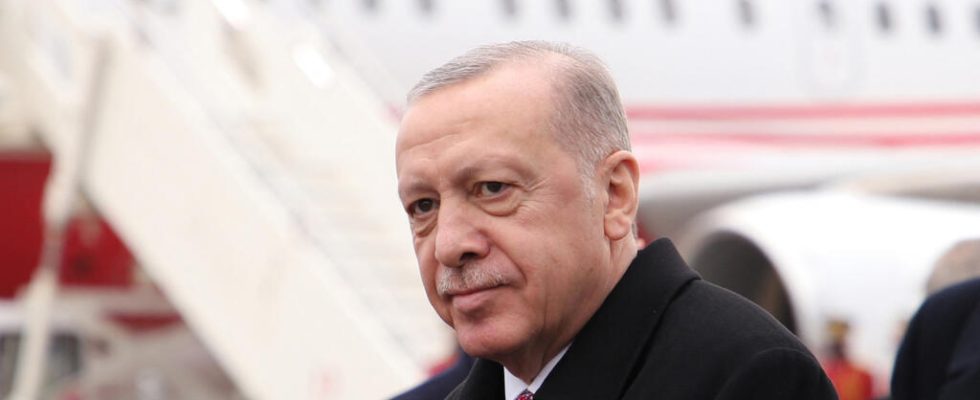Turkish President Recep Tayyip Erdogan is on an official visit to Iraq this Monday, April 22. A first in 13 years. He wants to strengthen his ties with the neighboring country. What strategic agreements will be concluded between the two countries? Analysis by Didier Billion, deputy director of Iris, specialist in Turkey and the Middle East.
4 mins
RFI: Last March, Iraq declared the PKK, the Kurdish Workers’ Party, ” terrorist organization “. News welcomed by Turkey, which announces major military operations in northern Iraq this summer. This Monday, April 22, we expect the signing of agreements between Baghdad and Ankara. Can we imagine that the subject will be part of these discussions?
Didier Billion: It is clear that there is a recurring subject between Ankara and Baghdad, it is the Kurdish question. THE Kurds ofIraq enjoy institutional autonomy since we are in a federal state. But inside this Kurdish part, there are bases of the PKK, the Kurdistan Workers’ Party, which is considered enemy number one by the Turkish authorities. And regularly, there are military operations on the part of the Türkiye against the PKK bases. Obviously, each time, Baghdad denounces what it considers to be a violation of its borders.
So in these strategic agreements, if there is an agreement, there will probably be mention of this question of the PKK – I speak in the conditional tense, let’s remain cautious – we can imagine that there will be the approval of the Baghdad authorities for an intervention Turkish military next summer.
Two oil pipelines linking Iraq to Turkey are closed. The second was stopped last year, but Ankara wants to diversify its suppliers. Should we expect discussions to resume flows?
Turkey has a vital need for energy supplies. Turkey has a recurring problem, which is that it does not benefit from hydrocarbon resources on its soil, so it is obliged to resort to imports and in this context, it seeks above all to diversify its imports.
She understood well, particularly with the war between Russia and Ukraine which created a danger of a disruption in supplies. And it is clear that Iraq is potentially a very important oil supplier in addition and obviously enjoys geographical proximity. So this lowers transport costs and therefore it is very likely that this will be one of the issues that will be discussed between the two countries. There is a clear need from Turkey. There is also a need for Iraq to sell its oil.
On this issue, I believe there will be an agreement reached and I think that the two parties have a common interest.
Read alsoTurkey stops importing oil from Iraqi Kurdistan
There remains another subject of tension between the two countries: Turkey’s control over the flow of the Tigris River. The droughts experienced by Iraq and the climate issue risk aggravating these tensions. Can an agreement be reached between the two neighbors ?
Turkey is considered a veritable water tower in the region and still enjoys quite considerable water reserves. Conversely, Iraq, like several other countries in the Middle East, is in a situation or will quickly become in a situation of water stress. There is still an Iraqi recrimination against Turkey over the sharing of water, in particular of this great Tigris river since the Turks have built large dams which mechanically reduce the flow of water reaching Iraq. So on this point, I think the negotiation risks being tough.
Will it be concluded during this trip? Probably not. If at the economic level, subjects of common interest can be concluded quite easily, it risks being a little more complicated on this question of water, which everyone understands is becoming an increasingly central issue for countries. from the Middle-East.
Read alsoIraq: the Tigris and Euphrates rivers once again suffer a sharp drop in level
